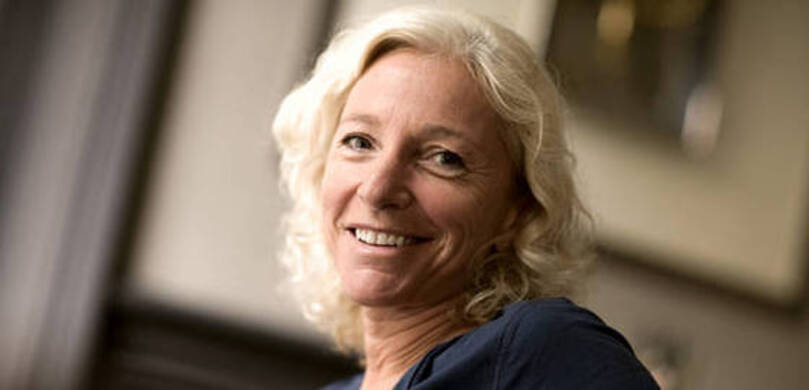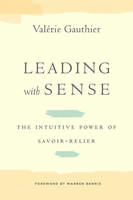Can you explain the concept of savoir-relier that you have been developing for twenty years? In what fields can it be applied?
The word savoir means ‘knowledge’, but by extension also encompasses savoir-faire (‘know-how’) and savoir-être (‘to know how to be’). Relier (literally, ‘to bind’ or ‘to link’ but also ‘to rely on’) refers to the ability to connect, create or discover relationships, to network and, by extension, to count on others and on oneself. Savoir-relier is the art of connecting people together and maintaining high-quality relationships as well as linking up ideas or differences, wherever they may come from, to create meaning and take the world forward.
So it results in better communication through positive, sensible, active listening in order to understand our environment and see the people we work with for who they really are, with their own ideas, their own self and sense of purpose, without judging them.
Savoir-relier can be applied to all disciplines where human relationships are important. It is a skill and a philosophy, but also a process. It is a management method that enables better team leadership and encourages relationships between people in spite of their differences of opinion.
Savoir-relier thus allows you to create sense (meaning) while being more sensible (i.e. attentive and vigilant towards others and yourself).
Do you have any examples of companies or executives who have been able to integrate this method into their strategy?
Pernod-Ricard was the first supporter of savoir-relier. The Pernod-Ricard directors immediately identified with this management method and wanted me to work with them to incorporate savoir-relier within the company. That was how we developed the HEC Paris-Pernod-Ricard Chair, creating the Leadership certificate, a program where 50 students can experience savoir-relier leadership every year for seven weeks. Pernod-Ricard is a great example. As a company that has developed internationally and has experienced strong external growth through mergers and acquisitions, the group was remarkable in its ability to unite and establish rich and diverse interpersonal relationships.
L’Oréal, and more specifically Jean-Paul Agon, also supported the book and the savoir-relier philosophy, appreciating the way this approach generates a genuine group identity.
Sanofi and General Electric are also good examples. In my book I quote Clara Gaymard, Managing Director of GE France and Vice President of GE International who has developed incredible savoir-relier abilities, both personally and professionally. The book draws on other examples, offering different perspectives. I also quote Pascal Cagni, CEO of Apple (2002-2012) who shares the quality of generosity and engagement that savoir-relier leaders have to generate a spirit of entrepreneurship and profit for the organization.
Can you profile a leader who applies savoir-relier?
The three pillars of savoir-relier (in the book I call them the 3 G) are genuine, generous and generative. These are the essential ingredients for building strong, positive relationships between people and things. To be genuine, you have to start by being yourself, by being transparent and sincere. It requires work and a mixture of self-confidence and humility.
As for generosity, this involves trust and attentiveness towards others. It shows the ability to commit with enthusiasm and energy, to give the best of yourself. A generous attitude leads to the creation of an open, kind and tolerant atmosphere where people from different cultures can work together. It is a way of uniting people.
So, genuineness and generosity create the conditions for generative leadership, one that encourages action, creativity, innovation and a strong sense of a shared mission. But the book also warns against the dangers of being too genuine or too generous with possible burnouts and other risks often faced by leaders.
With savoir-relier, the executive, manager or individual concerned acquires the necessary self-confidence to make good decisions based on the opinions and ideas of others, even if they are contradictory. When it is put into practice with courage, empathy, humility and resilience, savoir-relier stimulates creative initiatives, and creates meaning to foster action and results.
Savoir-relier, which we could also call ‘relational intelligence’, could be intuitive for certain managers. How can we develop this skill when it does not come naturally?
Although savoir-relier may turn out to be intuitive among certain people who have better awareness of their senses, it needs constant practice and determination because it forces you to use your intuition, which is difficult to do because it’s less reassuring than using an analytical thought process.
Some people think we should be wary of intuition because it’s not really rational, but intuition is also the result of experience. It is based on sensibility, the awareness of sensations and the use of your senses, which precedes emotions.
Savoir-relier offers a new way of approaching decision-making by considering sensory data as an essential source of information, a natural complement to our rational and intellectual abilities.
The aim of the book is to suggest ways of developing increased confidence in yourself and your senses. By mastering our senses and letting ourselves be guided by what they are telling us we will more easily overcome the tensions and contradictions that surround us, which will also help us to act more efficiently and build an organization that is both more sensitive and more sensible.
There are techniques for learning Savoir-relier. My friend, the late Warren Bennis, who has inspired generations of leaders and who wrote the preface to the book, said: “leaders are made rather than born”. He would tell you directly that savoir-relier is a distinctive characteristic of the best managers.
You recently took part in a round table entitled ‘Des sourires et des Hommes’ (Of Smiles and Men) at the MEDEF annual University (see video in French). What did you say to the Business Leaders present in the room?
Smiling demonstrates the inner strength of a charismatic leader. It shows their energy and shows whether they are able to lead and bring people together. The way you smile, look at people and listen to them, and the way you react physically and emotionally to difficult situations are an important source of confidence within a company. But it is not enough and a number of charismatic leaders have misled people and teams.
Respecting differences is a key to better leadership and concerns everybody. It is a collective job in which solidarity is necessary and consensus is important. The notion of sense is critical: sense as in purpose and meaning as well as sense in sensibility, using your senses. There’s a whole chapter about sense in all its useful leadership applications in the book.
Savoir-relier can help managers build something new, something likely to generate value and meaning over the long term, using a more collaborative model. Savoir-relier places relationships and human diversity at the service of innovation and collective performance.
One of the flaws of our corporations, a flaw which also contributes to leadership failure in politics, is that we are judgmental, overly critical and distrustful. When we judge, we are not being respectful. With savoir-relier, I advocate discernment, more openness and greater respect. Let’s learn to trust ourselves by learning savoir-relier!
Valérie Gauthier was educated in France and the United States, with a BS in Psychology (University Paris V), Masters in Modern Literature (University of Paris III) and English (University of Oklahoma), a PhD in Comparative Literature (Sorbonne) and Stanford’s Graduate Business School’s Executive Program (EPSO). Drawing from her expertise in linguistics and poetic translation as well as leadership and cross-cultural relationships, she has built relational communication and leadership development programs in schools and in companies under the concept of savoir-relier.







